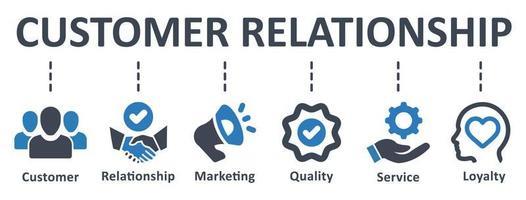
09-Feb-2023
What is Relationship Marketing and its Benefits?
The term ‘relationship marketing’ may not be familiar to many business owners, but it’s an increasingly important and powerful tool for marketers. Relationship marketing is about understanding customers, engaging with them in meaningful ways and building long-term relationships that benefit both parties.
It can offer significant return on investment, as well as offering other advantages such as increased customer loyalty, improved customer retention rates and deeper understanding of target audiences.
Customer relationship marketing (CRM) is a strategic process that businesses use to create, maintain, and grow customer relationships. CRM involves all aspects of a company’s interactions with its customers, from initial contact through purchase and post-purchase support.
The goal of CRM is to create long-term, loyal relationships with customers that lead to repeat business and increased profitability. To do this, businesses must provide excellent customer service and build strong customer relationships.
There are many benefits of relationship marketing for businesses, including:
· Increased Customer Loyalty – When customers have positive experiences with a company, they are more likely to become loyal, repeat customers.
· Improved Customer Service – CRM can help businesses improve their customer service by giving them a better understanding of their customers’ needs and preferences.
· Increased Sales and Profitability – CRM can help businesses increase their sales and profitability by growing their customer base and improving customer retention.
· Reduced Marketing Costs – By building strong relationships with customers, businesses can reduce their marketing costs by word-of-mouth referrals.
· Improved decision making – With the wealth of data available through CRM systems, businesses can make more informed decisions about their marketing and sales strategies.
Let’s take a more in-depth look at each of these benefits:
Fostering Customer Loyalty and Repeat Business: When businesses focus on developing long-term relationships with their customers, they are more likely to foster loyalty and repeat business. This is because customers feel valued and appreciated, and they know that the business cares about their satisfaction.
Generating Word-of-Mouth Marketing: When businesses have strong relationships with their customers, those customers are more likely to tell others about their positive experiences. This word-of-mouth marketing is powerful because it’s coming from a trusted source.
Creating a Competitive Advantage: Relationship marketing can help businesses create a competitive advantage because it allows them to stand out from the competition. When customers feel like they have a personal connection with a business, they are more likely to choose that business over others.
Increasing Customer Lifetime Value: The goal of relationship marketing is to build long-lasting relationships with customers. These long-term relationships can
If you're looking to improve customer relationships and loyalty, implementing a relationship marketing strategy is key. Here's how to do it:
1. Define your target audience.
Who are your ideal customers? What are their needs and wants? When you know who you're targeting, you can tailor your marketing efforts to appeal to them specifically.
2. Build trust and rapport.
Customers need to trust that you have their best interests at heart before they'll do business with you. Establishing trust takes time, so be patient and consistent in your interactions. Once you've built up a rapport, make sure to keep the lines of communication open so that customers feel comfortable reaching out with questions or concerns.
3. Offer value.
Your customers should feel like they're getting something valuable from their relationship with you, whether that's great customer service, exclusive deals, or valuable content. If they don't feel like they're getting anything of value, they'll likely take their business elsewhere.
4. Foster engagement.
Encourage customers to interact with your brand on a regular basis through social media, email campaigns, loyalty programs, etc. When customers feel like they're part of a community, they're more likely to stick around long-term.
But not this, I would like to give some tips on how you can do relationship marketing with your customers:
1. The first step to successful relationship marketing is understanding what your customers want and need. By taking the time to understand their pain points, you can develop a strategy that will address their needs.
2. Always be responsive to your customers. Whether they reach out to you via social media, email, or phone, make sure you are promptly addressing their inquiries.
3. Be personal with your customers. Take the time to get to know them on a personal level and build a rapport. This will make them more likely to do business with you and refer others to you as well.
4. Offer incentives for referrals. By providing your customers with an incentive to refer others to you, you can build a solid base of loyal advocates who will help grow your business.
5. Keep your promises. If you say you’re going to do something for your customer, make sure you follow through. This will build trust and keep them coming back for more business in the future

SEO and Content Writer
I am Drishan vig. I used to write blogs, articles, and stories in a way that entices the audience. I assure you that consistency, style, and tone must be met while writing the content. Working with the clients like bfc, varthana, ITC hotels, indusind, mumpa, mollydolly etc. has made me realized that writing content is not enough but doing seo is the first thing for it.
Join Our Newsletter
Subscribe to our newsletter to receive emails about new views posts, releases and updates.
Copyright 2010 - 2026 MindStick Software Pvt. Ltd. All Rights Reserved Privacy Policy | Terms & Conditions | Cookie Policy